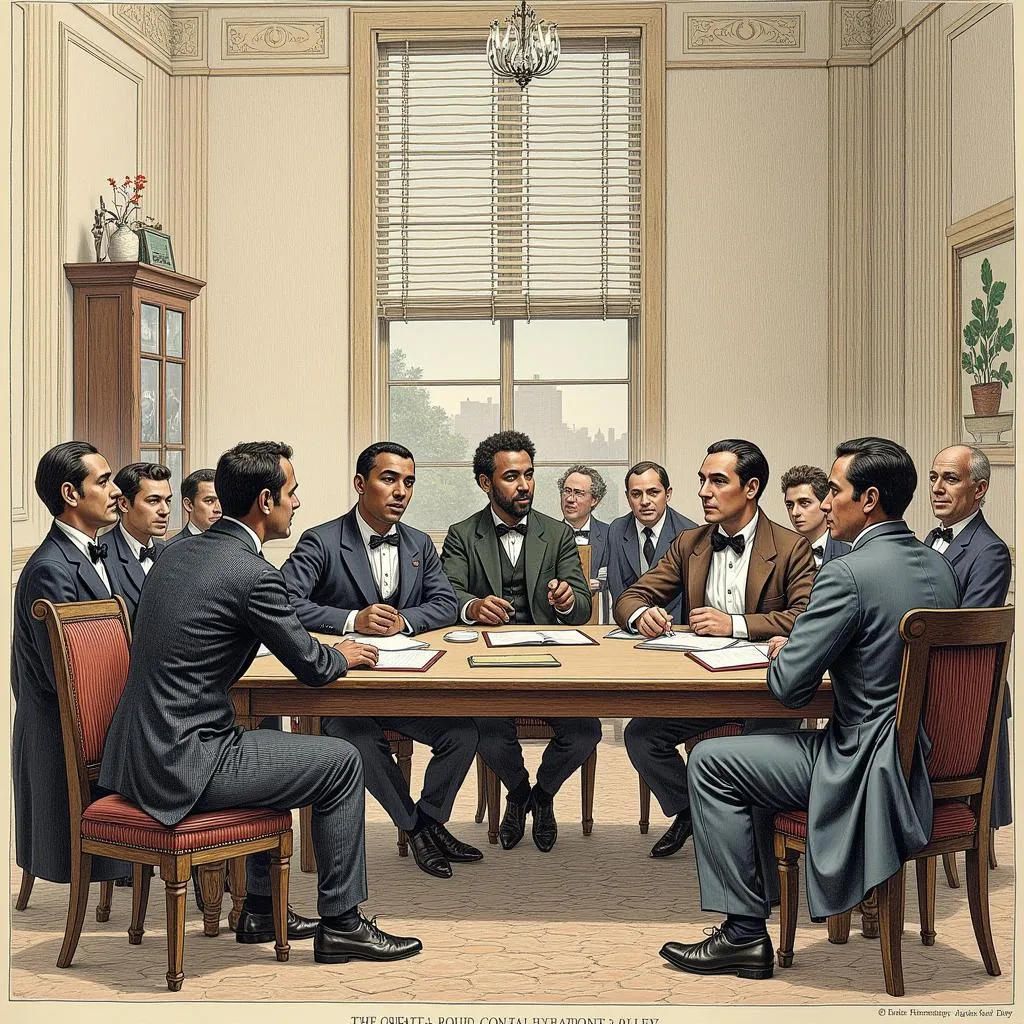The American Colonization Society, often abbreviated as ACS in APUSH contexts, was a complex and significant organization in early 19th century America. Founded in 1816, its primary goal was to relocate free Black Americans to Africa. While seemingly straightforward, the ACS’s motivations, actions, and legacy remain topics of debate among historians. This article delves into the American Colonization Society Apush Definition, exploring its origins, aims, and lasting impact on American history and race relations.
Examining the Roots of the American Colonization Society
The ACS emerged during a time of intense social and political change in the United States. Slavery remained a deeply divisive issue, and the growing free Black population in both the North and South fueled anxieties among white Americans.
Several factors contributed to the formation of the ACS:
- Racial Prejudice: Many white Americans, even those opposed to slavery, held racist beliefs and could not envision a multiracial society. They saw colonization as a way to remove Black Americans, who they viewed as inferior, from society.
- Fear of Slave Revolts: The Haitian Revolution (1791-1804), a successful slave uprising, instilled fear in the hearts of many slaveholders. They worried that a growing free Black population might incite similar rebellions in the U.S.
- Gradual Emancipation: Some proponents of colonization, such as Henry Clay, believed that gradual emancipation paired with relocation to Africa was the most feasible path to ending slavery. They argued that slaveholders would be more willing to free enslaved people if they were sent abroad.
 American Colonization Society Meeting
American Colonization Society Meeting
The Goals and Actions of the ACS
The American Colonization Society’s stated objective was to establish a colony in Africa where free Black Americans could live freely and independently. In 1822, the ACS established the colony of Liberia on the west coast of Africa. Thousands of Black Americans, both freeborn and formerly enslaved, emigrated to Liberia in the following decades.
However, the ACS’s motivations were often intertwined with racist ideologies and a desire to maintain white supremacy. Many members believed that Black Americans could never achieve true equality in the United States and viewed Africa as a more suitable home for them.
The Complex Legacy of the American Colonization Society
The ACS’s legacy is multifaceted and continues to be debated by historians. While the organization played a role in the founding of Liberia, a nation that offered some Black Americans refuge from racism and oppression, its actions were also rooted in racial prejudice and paternalism.
Here are some key points to consider when evaluating the ACS’s legacy:
- Support for Colonization within the Black Community: It is crucial to acknowledge that not all Black Americans supported the ACS or its goals. Many Black abolitionists, such as Frederick Douglass, vehemently opposed colonization. They saw it as a racist scheme designed to exile Black Americans from their rightful home.
- Liberia’s Independence and Struggles: Liberia declared independence in 1847, becoming the first independent Black republic in Africa. However, the nation faced significant challenges, including internal conflicts and economic struggles.
- The Enduring Debate: The American Colonization Society remains a subject of historical debate. Some argue that it had noble intentions, albeit flawed, while others condemn it as an inherently racist organization.
 Frederick Douglass Speaking Against Colonization
Frederick Douglass Speaking Against Colonization
Conclusion: Reflecting on the ACS’s Impact
Understanding the American Colonization Society is essential for comprehending the complexities of race relations and the abolition movement in the 19th century. While the ACS’s goal of resettling Black Americans in Africa was realized with the founding of Liberia, the organization’s motivations and actions remain a source of controversy. The ACS’s legacy serves as a reminder of the enduring struggle for racial equality in the United States and the importance of critical examination of historical events.
FAQ: Frequently Asked Questions about the American Colonization Society
1. What were the main reasons for the formation of the American Colonization Society?
The ACS emerged from a combination of racial prejudice, fear of slave revolts, and a belief in gradual emancipation through relocation.
2. Did all Black Americans support the American Colonization Society?
No, many Black Americans, including prominent abolitionists like Frederick Douglass, strongly opposed colonization.
3. What was the ACS’s role in the founding of Liberia?
The ACS established Liberia as a colony in 1822, and thousands of Black Americans emigrated there in the subsequent decades.
4. How should we view the legacy of the American Colonization Society?
The ACS’s legacy is complex and contested. It played a role in founding Liberia but was also rooted in racist ideologies.
5. Why is understanding the ACS important today?
Studying the ACS helps us understand the evolution of race relations, the complexities of the abolition movement, and the ongoing struggle for racial justice.
Need Help? Contact Society for Peace
For more information and support on peacebuilding and intercultural understanding, please reach out to us:
Phone: 02043854663
Email: [email protected]
Address: Khu 34, Bắc Giang, 260000, Việt Nam
Our dedicated team is available 24/7 to assist you. Let’s work together to create a more peaceful world.